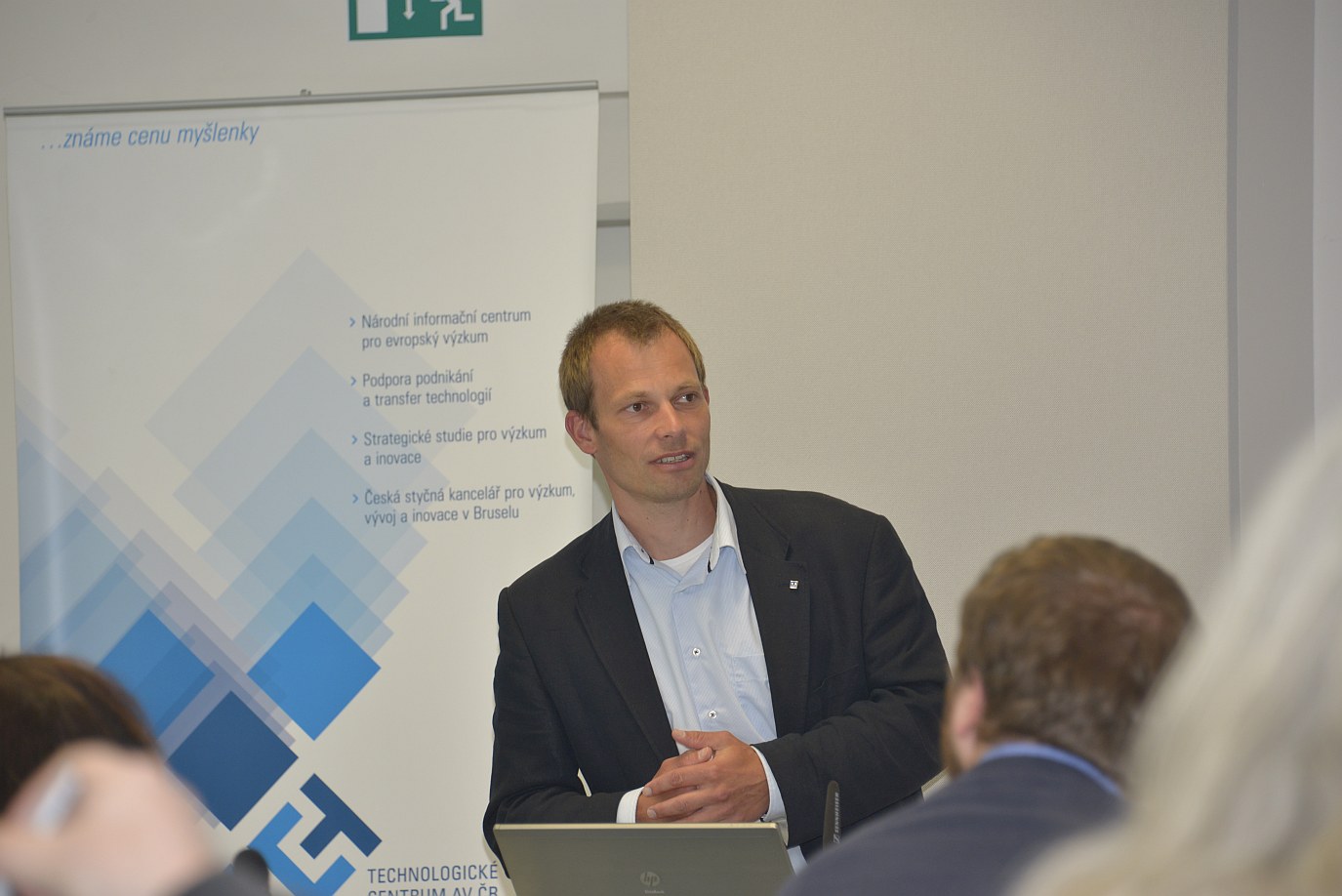About us
The Technology Centre Prague is a national information and consultation centre for the EU Framework Programmes for Research, Development and Innovation, it is a leading national research workplace and a think-tank for research and innovation policy and a provider of specialised services for the creation and development of innovative companies.
Our mission
Our mission is to support the involvement of the Czech Republic in the European Research Area (ERA), to process complex strategic studies for research and innovation and transfer research results to decision-making institutions to improve the quality of their strategic decision-making at the national, regional and European levels, carry out international technology transfer and contribute to increasing the international competitiveness of Czech companies.
Our history
Technology Centre Prague (TC) was established in 1994 as an association of legal entities under the name Technology Centre of the Academy of Sciences of the Czech Republic. The founding members were the Academy of Sciences - Institute of Chemical Processes, Institute of Physics, Institute of Plasma Physics, Institute of Molecular Genetics and Institute of Microbiology, in 2005 the company Technology Management,Ltd. became a member of the association.
The intention to establish the TC had the ideological support of the leadership of the Academy of Sciences at that time, but under conditions the organisation would not draw funds from its central budget. Over time, it became clear that this seemingly negative condition had a fundamentally positive effect on the development and character of the resulting Technology Centre. The permanent need to compete for funds from a wide portfolio of financial sources, including commercial ones, helped to create a very healthy institutional culture for the TC with a clear focus on performance and efficiency.
The initial aim of the TC was to operate an incubator for spin-off companies with linked to research projects of the Academy of Sciences of the Czech Republic. However, the original generous demarcation of the premises for the incubator was corrected over time, as the Academy of Sciences needed space for its own research. It was clear that the road to the TC's economic self-sufficiency does not lead here, and it was therefore necessary to look for
One of these opportunities was the gradual expansion of the portfolio of services for technology-oriented small companies and the strengthening of the technology and knowledge transfer from the research sphere to industry and directly between innovative enterprises. Over time, this activity has become one of the TC's strongest agendas and is currently implemented through the international Enterprise Europe Network, whose activities in the Czech Republic are coordinated by the Technology Centre. The basic aim of the network is to support the growth of the competitiveness of small and medium-sized enterprises and to facilitate their successful entry into international markets.
Another such opportunity was the opening of the EU Framework Programmes for Research and Technological Development in 1997, even for candidate countries for EU membership. The TC took full advantage of this opportunity and gradually became a respected national information, consultation and training centre that provides comprehensive support for the successful participation of national teams in international research cooperation projects. An extension of this activity was the opening of the Czech Liaison Office for Research, Development and Innovation in Brussels (CZELO) in 2005. The office ensured direct contact between Czech research and European institutions, especially the European Commission and the European Parliament. In 2020, the agenda of the CZELO office was expanded to include the field of education, and its further activities are provided by the House of Foreign Cooperation, a contributory organisation of the Ministry of Education and Culture.
An important milestone in the development of the TC was the establishment of the agenda for the preparation of analytical and conceptual studies in the field of research and innovation in 2000. Over time, the TC has become a leading national research workplace and think-tank for the management and policy of research, development, and innovation. The TC provides independent information based on comprehensive evaluations of the research, development, and innovation environment as well as on specialised scientometric analyses. An important element is also the development and application of new approaches for the systematic exploration of variants of the future development of society (foresight) and for the assessment of the impact of new technologies on society (technology assessment). These approaches significantly enrich the outputs of evaluations and system analyses and effectively supplement the portfolio of strategic intelligence services for research and innovation provided by the TC, with the aim of improving the quality of strategic decision-making at the national, regional, and European level.
Receiving support for the reconstruction of its own building in 2009 enabled the concentration of all the TC agendas in one place and the construction of a modern conference centre for holding professional seminars, trainings, and conferences. This has created a unique centre of integrated innovation services that synergistically support each other.
In 2015, the TC expanded its advanced technology initiatives by signing a contract with the European Space Agency (ESA) to transfer knowledge and technology from ESA space programmes to application areas outside the space sector and to support the development of companies developing or using space technologies. In this context, the TC has also strengthened the activities of its internal acceleration program BusinessRunway, which focuses mainly on companies dealing with space technologies.
At the end of 2022, the Technology Centre of the Czech Academy of Sciences was renamed the Technology Centre Prague, and at the beginning of 2023, a memorandum of cooperation was signed with the Czech Academy of Sciences.






